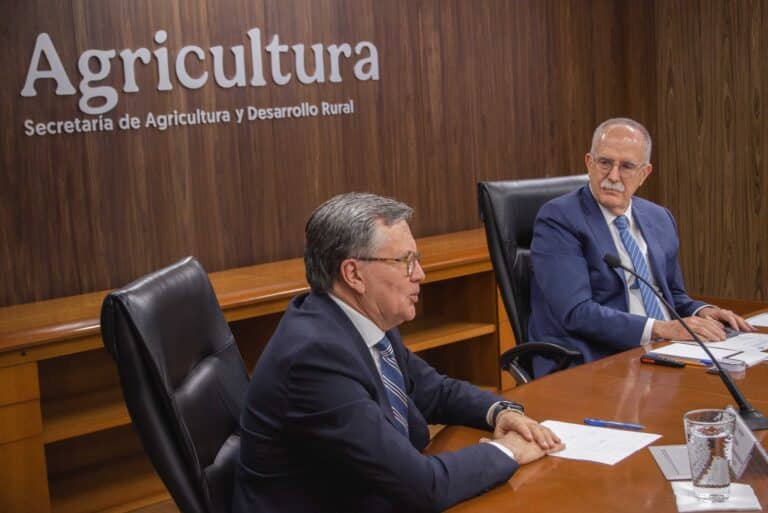At the Global Landscapes Forum, an activity being held in Lima parallel to the COP 20, IICA underscored the need to increase efficiency in converting natural resources into food.
Lima, December 2014 (IICA). Efforts to promote innovations that improve water and soil use, increase postharvest management capabilities, make greater use of renewable energies in food production and foster sustainable forest management and timber production are some of the actions that would allow the Latin American and Caribbean (LAC) countries to make agriculture more sustainable and boost the development of rural territories.
“Rural area-based development should be seen as a production model in which forest, agricultural, livestock, aquaculture and energy ecosystems and society co-exist. Territories must be productive, sustainable and inclusive,” affirmed the Director General of the Inter-American Institute for Cooperation on Agriculture (IICA), Víctor M. Villalobos, in a panel discussion organized within the framework of the COP 20, in Lima, Peru.

IICA was the implementing partner of the Global Landscapes Forum, one of the most important activities being held in the Peruvian capital parallel to the 20th Conference of the Parties (COP 20) of the United Nations Framework Convention on Climate Change (UNFCCC).
The forum is being used to advocate an integrated landscapes approach to agriculture, forestry, water and energy issues, in order to find the solutions needed for climate change mitigation and adaptation. It was organized by the Center for International Forestry Research (CIFOR).
Other participants in the panel discussion were the IICA Representative in Peru, Hernando Riveros, and executives of Colombia’s Centro de Investigación Carbono y Bosques, the Renewable Energy and Energy Efficiency Partnership (whose regional secretariat for LAC is operated by the Organization of American States–OAS–), the Fundación Natura Bolivia and the programs for Sustainable Forest Management (SFM) and Alliance in Energy and Environment (AEA) in the Andean Region, both implemented by IICA in Bolivia, Colombia, Ecuador and Peru with financing from Finland’s Ministry of Foreign Affairs.
Villalobos suggested five objectives that the LAC countries should strive to achieve to make agriculture more sustainable and improve living conditions in rural territories:
• Implement good agricultural practices so that natural resources–especially water and soil–are converted into food more efficiently.
• Acquire more of the skills required to incorporate innovations into agriculture–such as biological control, direct seeding and conservation tillage–expand irrigation, limit emissions and manage forest plantations.
• Recognize and make adequate use of native genetic resources and the traditional forms of cultivating them, in order to increase access to food and reduce ecosystem vulnerability.
• Strengthen generational renewal and promote farming as a dignified way of life.
• Promote public policies for agriculture and the environment that complement each other.
“Agriculture co-exists alongside natural resources and makes use of them but there are many ways in which it could be made more sustainable, by incorporating knowledge and innovation,” the IICA Director General remarked.
Several of the speakers presented international experiences involving natural resource management in agriculture.
William Laguado, executive director of Colombia’s Centro de Investigación Carbono y Bosques, explained that seven of the 55 forest projects designed to reduce emissions registered with the UNFCCC were being implemented in his country, making it one of those most actively involved in the issue.
“Reducing carbon emissions is one of the ways to combat climate change but it must be complemented with other initiatives, such as the sharing of experiences among the LAC countries,” Laguado observed.
“The use of clean energies in agriculture maximizes the benefits of access to energy, leads to rural economic development and promotes economic sustainability in the territories,” asserted Juan-Cruz Monticelli, Regional Secretary of the partnership promoted by the OAS.
Nigel Asquith, Scientific Director of the Fundación Natura Bolivia, reaffirmed IICA’s position, which is that water resource conservation is one of the keys to agricultural sustainability. “In the Andean countries, the opportunity cost of protecting watersheds is much lower than the cost of having less water downstream,” he noted.
Manuel Mavila, technical coordinator of IICA’s SFM Program, pointed out that the area-based approach added value to the actions taken to mitigate the effects of climate change and adapt agriculture to them.
“Adaptation with a territorial vision takes into account the impact on food security, health and the well-being of the most vulnerable rural families,” Mavila affirmed.
More information:
hernando.riveros@iica.int











